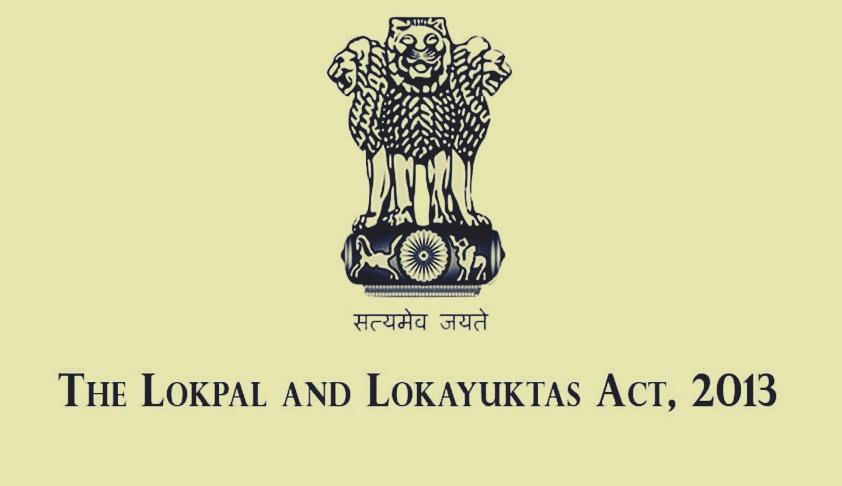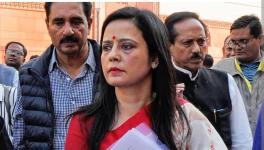Lokpal Selection Committee did not Meet Even Once in Nearly 4 Years

Image for representational use only; Image Courtesy : Live Law
The BJP government, which came to power with the promise of good governance and to fight graft, is blatantly attacking the institutions of accountability and transparency, with a no holds barred approach. A latest RTI (Right to Information) accessed by the National Campaign for Peoples' Right to Information or Satark Nagrik Sangathan revealed the Government's inaction on setting up the Lokpal. The RTI reply exposed that, “no meeting of selection committee for has been held for almost 4 years”, making it clear that the process of selection of the Lokpal is shrouded in complete secrecy.
Information obtained under the RTI Act showed that under the chairmanship of PM Modi, the selection committee of the Lokpal met for the first time only in March 2018 - more than 45 months after the BJP came to power. The RTI response also revealed that no meeting of the search committee has been held till date, highlighting the lack of commitment of the government to the setting up of Lokpal.
Making this intent of the Modi government amply clear, the minutes of the six meetings of the selection committee held between March 2018 and till date, have been denied by the government on the pretext that the selection committee includes “high level dignitaries” and therefore the minutes are “secret documents”. The DoPT (Department of Personnel and Training) has stated:
“As regards the minutes of the meetings, it is submitted that the authorship of such documents which include 3-5 high level dignitaries does not vest in the Department of Personnel & Training and same have been shared as secret documents. Thus, copies of the said documents cannot be provided by the undersigned CPIO.”
It is pertinent to note that the PIO (Public Information Officer) has not cited any of the exemptions allowed under the RTI Act, making the denial of information blatantly illegal.

The Question of Vacancies
Another PIL (Public Interest Litigation) reply on the question of vacancies in information commissions set up under the RTI Act, heard by the Supreme Court on December 13, 2018, made it clear that currently in the CIC, there are 8 vacancies, including that of the chief and about 26,500 appeals/complaints are pending.
Pinky Anand, ASG (Additional Solicitor General) informed the court on December 11, 2018, that the selection committee had met and the selection of the chief information commissioner was to finalised. The selection of four other vacancies which were also advertised was not finalised and was deferred. The ASG stated that for the post of the chief, 64 applications were received and for the posts of 4 information commissioners which were advertised, 280 applications were received.
Also Read: National Campaign for Peoples’ Right to Information
In fact, in its rejoinder, the BJP government had itself claimed that transparency about the process of appointment was not conducive. Taking serious note about the lack of transparency in the process, the SC bench directed that the government must ensure that information related to the selection including number and names of applicants, composition of search committee, criteria for shortlisting, and details of the selection committee is immediately uploaded on its website. Further, it directed the government that the other three vacancies must also be advertised and the advertisement must clearly define the salary and tenure as per the RTI Act.
Government Subverted Appointments
The court also took serious note of the continuing subversion of the RTI Act in Andhra Pradesh, where the State Information Commission has been non-functional for 20 months. It was pointed out that even though three commissioners were appointed after a PIL was filed, no chief had been appointed. For appointments to the Maharashtra State Information Commission, the court enquired whether appointments were made subsequent to an advertisement. It directed the government to file a reply.
Speaking with NewsClick, Anjali Bhardwaj, one of the petitioners in the PIL, said, “The government had completely subverted the process of appointment. It had issued a defective advertisement which did not specify the salary and tenure of commissioners. This would have dissuaded people of eminence from applying.”
The petition highlights that the, “Government of India and state governments have attempted to stifle the functioning of the RTI Act by failing to do their statutory duty of ensuring appointment of commissioners in the Central Information Commission and State Information Commissions, in a timely manner”. Further, it underlines the need for transparency in the appointment of commissioners. “...lack of transparency in the appointment of information commissioners, and the violation of directions of the Supreme Court regarding the procedure for appointment of information commissioners, is undermining the institution of the information commission”.
Also Read: Hundreds Protest in Delhi Against Proposed Changes in RTI Act
Bharadwaj added, “The instance of subversion are not isolated cases, they must be understood in a larger context. In the last four and a half years of the Narendra Modi rule, no Chief Information Commissioner has been appointed without the activists approaching the court. The RTI amendments that are being pushed by the government bring the salaries, the tenure etc. of the CIC under the ambit of the central government. There is also a question of the safety of those who file the RTIs. Until now, there have been over 78 cases of RTI related deaths, and when one looks at the Whistleblowers Protection Bill, it has still not been passed, primarily because it requires a small amendment. The amendments that the BJP government is so hell bent on can be made later as well. The fundamental problem is the lack of political interest in bringing these safeguards.”
Calling this process of subverting a planned breakdown, she added that this breakdown is one that is happening at the legislative level but also simultaneously, one, that undermines institutions that were in the process of safeguarding the same.
The only tool for the common people of this country to access information and to fight graft has been the Right to Information Act, which is being rapidly overruled by the BJP government. The underlying issue is far bigger- the issue of people’s fundamental right being thwarted.
Get the latest reports & analysis with people's perspective on Protests, movements & deep analytical videos, discussions of the current affairs in your Telegram app. Subscribe to NewsClick's Telegram channel & get Real-Time updates on stories, as they get published on our website.























